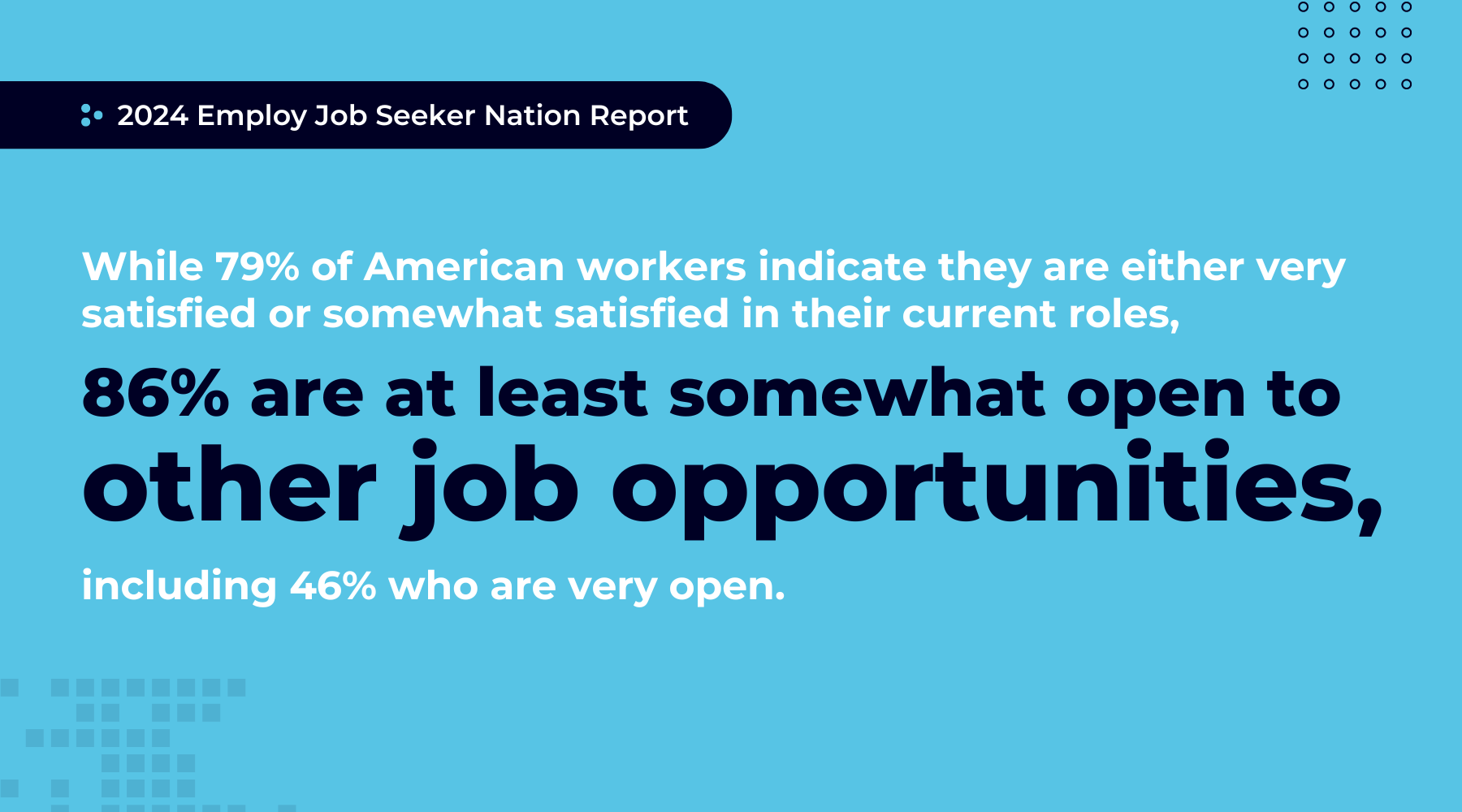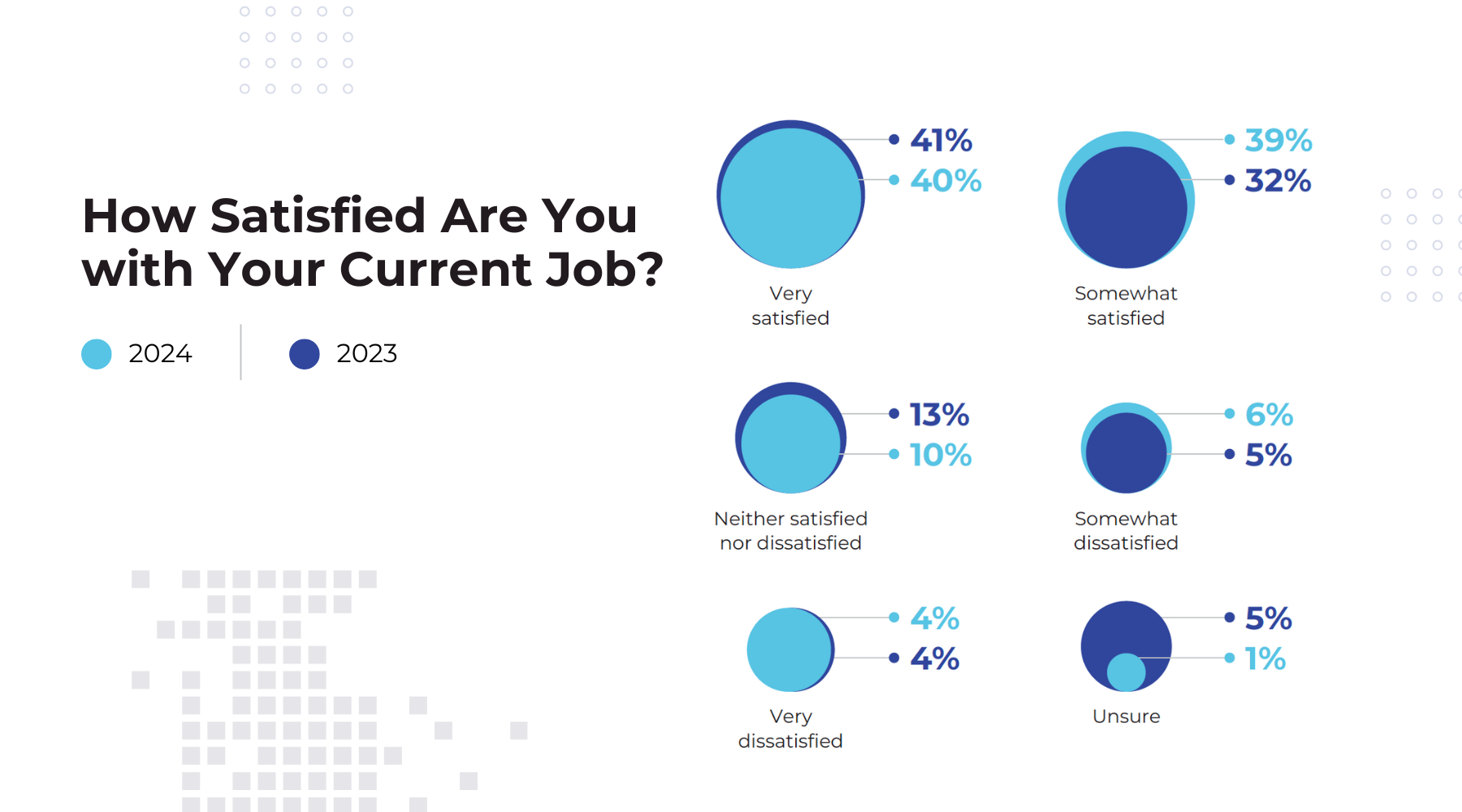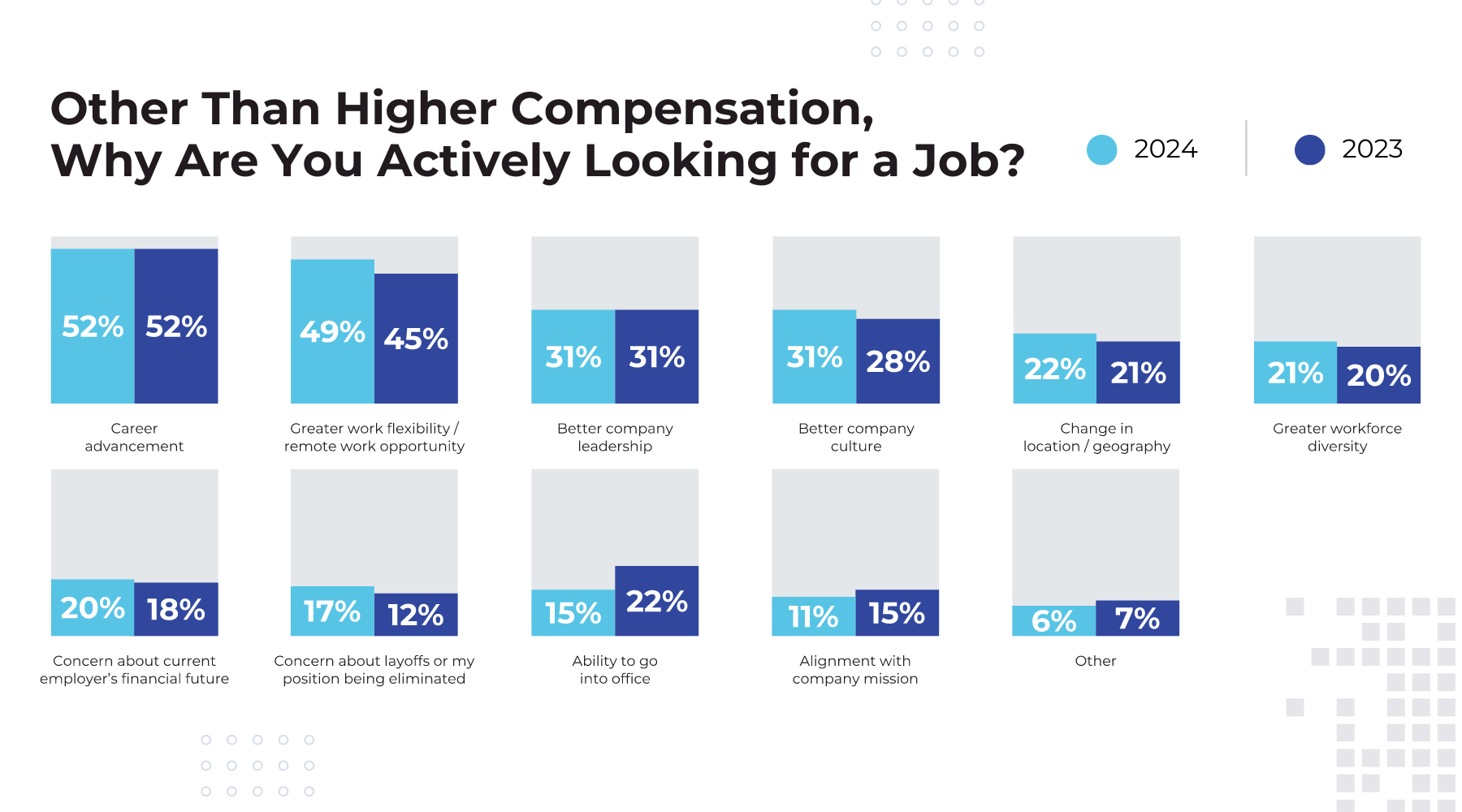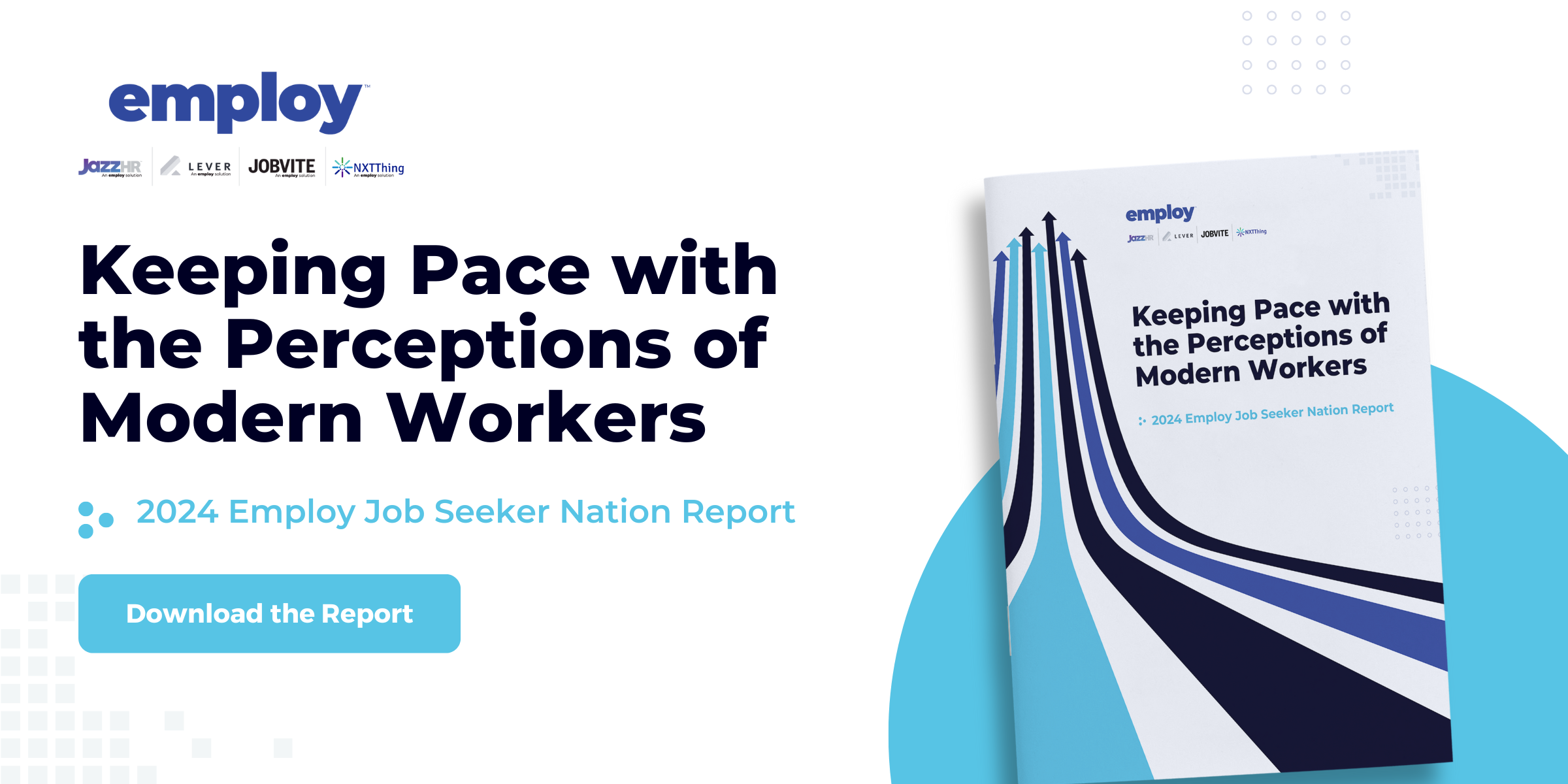The job market continues to defy expectations. Companies have added new jobs at a rapid pace, with the Bureau of Labor Statistics reporting more than 800,000 new jobs added in Q1 2024 alone.
To understand the perspectives of job seekers in this complex market, Employ conducted its annual survey of U.S. workers, exploring job satisfaction, career motivations, preferences for workplace flexibility, experiences during the job search process, and recruiter-candidate interactions.
The 2024 Employ Job Seeker Nation Report, conducted in partnership with Zogby Analytics, surveyed more than 1,500 U.S. workers in April 2024, and the results may surprise or even alarm employers.

The survey found that while 79% of American workers indicate they are either very satisfied or somewhat satisfied in their current roles, 86% are at least somewhat open to other job opportunities, including 46% who are very open. Additionally, 40% of workers are actively looking for new employment, with a majority (58%) looking for new roles within their current company.
Beyond compensation, active job seekers are primarily motivated by career advancement, greater work flexibility, and remote work opportunities. Company culture and better leadership also rank high in importance to candidates. The report also reveals that candidates are feeling confident in the current labor market, with 50% of active job seekers believing that finding a job is easy and 56% believing that the current job market favors candidates.
For employers today, understanding job seeker mindset, motivations, and behavior is critical to connecting with candidates more effectively and staying competitive in a tight labor market. The full 2024 Employ Job Seeker Nation Report provides an in-depth, data-driven look at:
- The complexity of job seeker realities in the current market
- Motivations for leaving jobs or declining new offers
- Preferences for workplace flexibility
- Experiences during the job search process
- Recruiter-candidate interactions
Employers can use this information to optimize and improve their recruiting functions, informed by the realities job seekers face right now. Here’s a peek at what’s inside:
Complexity of Job Seeker Realities
When it comes to levels of job satisfaction, U.S. workers are overwhelmingly satisfied in their roles. According to the Employ survey data, 79% are either very satisfied or somewhat satisfied, compared to just 10% of job seekers who are dissatisfied.

Despite these high levels of satisfaction, 86% of workers are at least somewhat open to other job opportunities, including 46% who indicate they are very open.
Similar to 2023, a significant percentage of U.S. workers are actively looking for a new job right now, with 4 in 10 workers indicating they are seeking new employment. The good news for employers is that a majority of job seekers (58%) have looked for a new position within their current company.
Active Job Seekers
So, what motivates job seekers to look for new employment? Beyond compensation, active job seekers are primarily motivated by career advancement and greater work flexibility or remote work opportunities.
Employers should recognize that candidates are looking for opportunities to progress and to stay flexible in their approach to work. By emphasizing advancement and flexibility in recruitment messaging, companies can differentiate themselves to job seekers in the market.

Company culture and better company leadership also rank high in importance to candidates. Organizations must take an active role in managing their employer brand and ensuring they have strong leaders who can effectively lead the workforce.
When it comes to looking for new roles, 50% of active job seekers believe that finding a job in the current labor market is easy, and 56% believe that the current job market favors candidates. Nearly two-thirds believe it will take them less than three months to find a new job.
Download the Full Job Seeker Nation Report
Stay ahead of the curve and attract the best talent to your organization. Download the free report and gain valuable insights into the job market and job seeker preferences.





